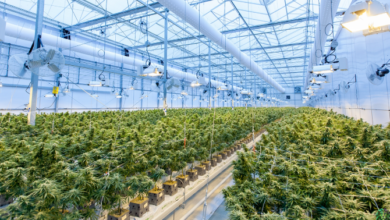Is CBD Oil Legal in Florida? Understanding Local Laws

The legal status of CBD oil in Florida is a nuanced topic, shaped by both federal and state regulations. Following the 2018 Farm Bill, hemp-derived CBD with less than 0.3% THC has been deemed legal, yet Florida's specific laws impose additional layers of compliance for producers and sellers. As Florida continues to adapt to the growing market, understanding the implications of these regulations is crucial for consumers seeking safe and effective products. What are the key considerations to keep in mind when navigating this evolving landscape?
Overview of CBD Oil Legality
In Florida, the legality of CBD oil is primarily governed by both state and federal regulations, which have evolved significantly in recent years to accommodate the growing demand for hemp-derived products.
CBD oil is recognized for its potential medical benefits, notably in pain management and anxiety relief.
However, adherence to specific usage guidelines is essential to ensure compliance and maximize therapeutic outcomes.
State Regulations in Florida
Florida's state regulations governing CBD oil are shaped by both the 2018 Farm Bill, which legalized hemp-derived products federally, and specific legislative actions that outline the parameters for production, sale, and use within the state.
These regulations require state licensing for producers and ensure that hemp cultivation adheres to established guidelines, fostering a legal framework that supports consumer access and industry growth.
Federal Laws Impacting CBD
How do federal laws shape the landscape of CBD oil regulation in the United States?
Federal restrictions, primarily established by the 2018 Farm Bill, define hemp as cannabis containing less than 0.3% THC.
This clear hemp definition facilitates the legal production and sale of CBD oil derived from hemp.
Yet ongoing ambiguities in federal guidelines continue to influence state-level regulatory frameworks and consumer access.
How to Purchase CBD Oil
Purchasing CBD oil in Florida requires consumers to navigate a variety of options, ensuring that products meet both state and federal regulations.
Online retailers often provide a broader selection, but it is crucial to verify quality assurance through third-party lab testing.
Consumers should prioritize reputable brands that transparently disclose their sourcing and testing practices to ensure compliance and product safety.
Conclusion
In conclusion, the legal landscape surrounding CBD oil in Florida reflects a carefully constructed framework that balances consumer access with safety measures.
As the market continues to expand, understanding the intricacies of state and federal regulations remains crucial for consumers.
Adhering to the principle of “knowing the lay of the land” ensures informed choices when purchasing CBD products, ultimately contributing to a more responsible and compliant market environment.
Awareness of these laws safeguards both consumers and producers alike.




